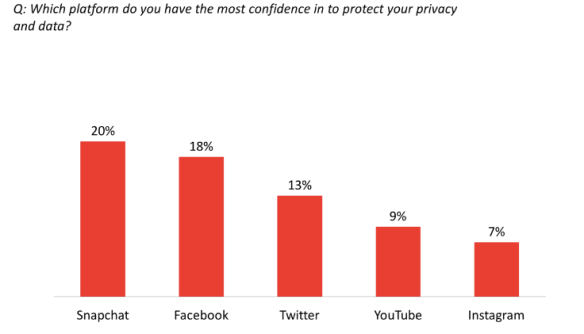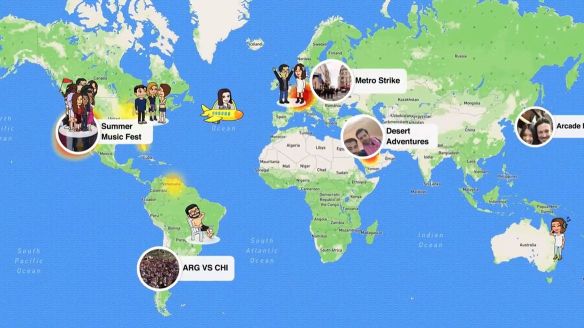Ernest Hemingway said that “the best way to find out if you can trust somebody is to trust them” …while this may have been true in the 20th century, Hemingway was long gone before the social media age, and sadly we as consumers have been burned by trusting ‘the digital’ too much.
Since the beginning of Instagram stories in 2017, this posed as a threat to Snap Chat as Instagram trumped the only stand out feature of the latter and used it to their advantage. Snap Chat was then forced to come up with something more innovative to gain back their market share, which led to ‘Snap Map’. This feature has enabled us to map out our friend’s locations of homes, schools, workplaces and places of leisure, which in turn has presented the danger of stalking.
In May 2017, it was discovered that Snap Chat was the most trusted social media site (http://www.businessinsider.com/the-digital-trust-report-insight-into-user-confidence-in-top-social-platforms-2017-5/?r=AU&IR=T) compared to Instagram, Facebook, Twitter and YouTube.

However, when Snap Chat released their ‘Snap Map’ update in June 2017, this sparked an enormous amount of controversy because everyone had the capacity to track down all of their Snap Chat friends – no matter where they are in the World. While Snap Chat has described this feature as a “new way to explore the world”, I merely consider it just another concept that encourages stalker-like behaviour.
WhatsApp wasn’t far behind Snap Chat when they created their ‘live location’ where you can check where people are at any point and track their movements down to the second. Is this really necessary? Must we know where our friends are at every point in the day? No, we don’t. Despite these features having the power to ruin friendships and relationships because people love to ‘stalk’ their friends and family on social media. It has also blatantly given these apps’ the explicit power to stalk us as well.
I find it truly astonishing that since the initial outrage of the Apple ID ‘fingerprint recognition’, all of the conspiracy surrounding this issue into an invasion of our privacy, we as a globally digital society have allowed this to grow into even bigger issues and have redefined the definition of ‘stalker’ in 2018.

If these apps’ have allowed us to map out our friend’s movements constantly, there is no question that these brands themselves track our every move…I’m perplexed as to why people are okay with this and don’t consider this an invasion of our privacy? Or do people think that privacy is just not an option anymore when it comes to social media, so we may as well steer into it and embrace all aspects of the digital age?


